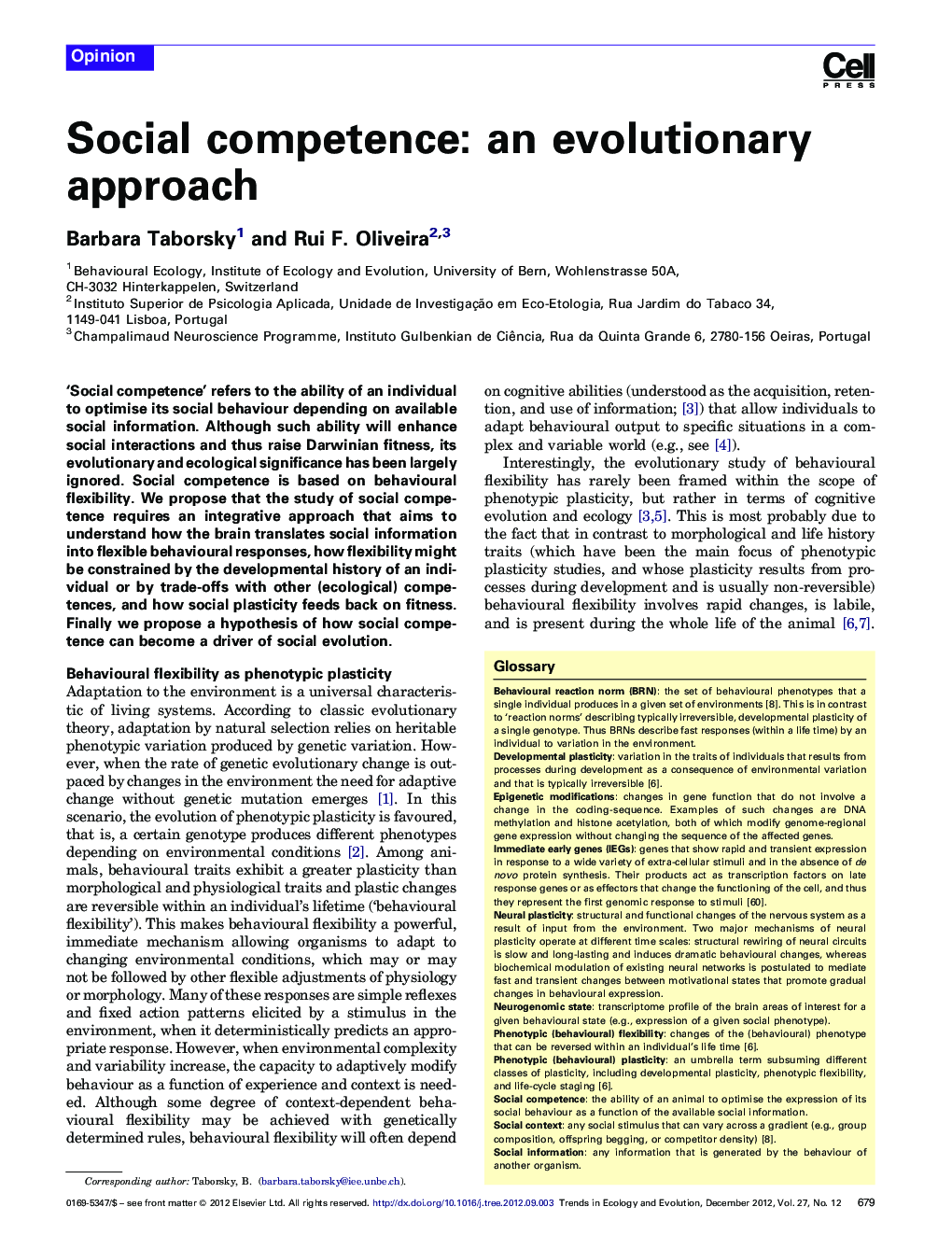| Article ID | Journal | Published Year | Pages | File Type |
|---|---|---|---|---|
| 142562 | Trends in Ecology & Evolution | 2012 | 10 Pages |
‘Social competence’ refers to the ability of an individual to optimise its social behaviour depending on available social information. Although such ability will enhance social interactions and thus raise Darwinian fitness, its evolutionary and ecological significance has been largely ignored. Social competence is based on behavioural flexibility. We propose that the study of social competence requires an integrative approach that aims to understand how the brain translates social information into flexible behavioural responses, how flexibility might be constrained by the developmental history of an individual or by trade-offs with other (ecological) competences, and how social plasticity feeds back on fitness. Finally we propose a hypothesis of how social competence can become a driver of social evolution.
